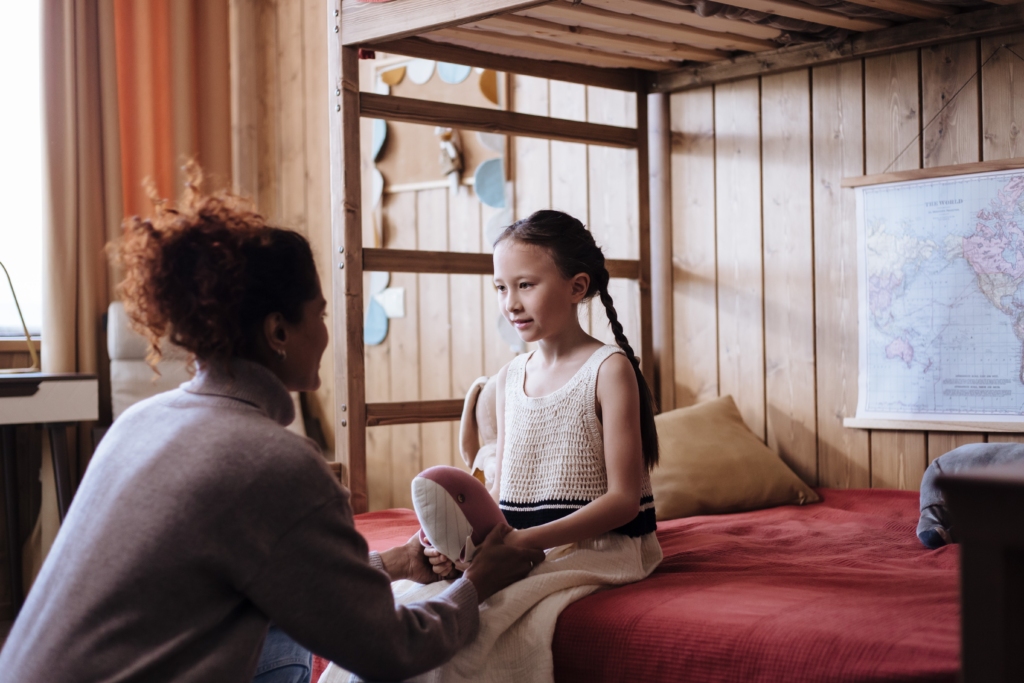Is your family experiencing a loss? Are you in the process of grieving and having a difficult time adjusting to a change in your life?
As parents, the urge to protect our children is embedded in our fibers– and yes that includes emotional pain. What we fail to understand is that emotional pain, just like physical pain, is a part of being human.
Our children will naturally experience emotional pain as they navigate through life and often there is little to be done to protect them from going through difficult situations– whether it is difficulties in their friendships, in their future relationships, with accepting themselves, external and circumstantial factors, moving to a new location, starting a new school, going through friendship breakups or relationships coming to an end—life is full of difficult times.
“it is vital for us as parents to not only prepare our children to be able to withstand difficult times but also model what healthy coping and expression of emotional pain can look like”
When you are going through a difficult time in your life, it is healthy to show emotions and share those feelings with your children. It is okay to cry, to show your vulnerability, to express the need to take some time and space, and to grieve a loss or adjust to a big change. It is through these difficult conversations that we teach our children that going through emotional pain is a normal part of life. Showing them how to deal with these difficulties through healthy coping strategies will prepare them for what life can through at them.
So, if you are going through something difficult, sit down and have a conversation with your child about it, cry if you need to. Explain why you need to set some more boundaries around what you can and cannot do as you deal with your feelings. Demonstrate healthy coping strategies by engaging in self-care, going on longer walks, needing to take space to be by yourself, etc.
If we don’t normalize and demonstrate how to navigate through difficult times, what we are teaching our children is that difficult times should not happen to us, we are teaching them that we need to mask our feelings and pretend that we don’t feel pain. When our children become older and as they experience emotional pain, they will do the same. They will shut down and not talk about it, they will keep to themselves, they will resort to engaging in behaviors that will mask what they are feeling rather than creating space to feel these human emotions. The fastest way to mask emotions, to not feel anything, is often unhealthy behaviors— medications, drugs, alcohol, unhealthy sexual boundaries amongst many other unhealthy behaviors.

There is a difference between sharing your feelings and modeling healthy behaviors vs making it your child responsibility to care for your feelings. Often, parents will say I don’t want to burden my child with my feelings, and that is totally understandable. You are not burdening your child with your emotional pain if you are not making them feel responsible for your pain. If you share your feelings and stay in control of your emotions, if you express that you are going through a difficult time, but you have what it takes to see it through, your child will not feel responsible for your pain as they know that you have this figured out. This in turn will allow your child the confidence to come to you for emotional support, should they go through emotional pain, knowing that my parent knows how to handle difficult situations.
Now this very thing, is what we want for our children. We want them to come to us for support, we want them to feel that we can handle their pain, and that we can help them see through it as they develop skills that prepares them for difficulties of their life.

Take this opportunity to connect with your child. Explain your feelings in age-appropriate terms and ways. Explain that you feel sad right now as you are going through a difficult time. Ask them to join you in taking deep breaths, in sharing good memories, writing letters, journaling, going on walks, saying a prayer, listening to a song together, etc.
Prepare them for realities of life. Help them gain confidence in knowing that them too can have the strength to see it through.

